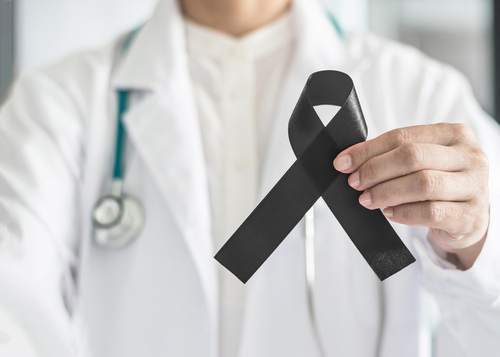Most people know that being exposed to the sun for long periods of time can be dangerous for our skin and our overall well-being. After all, that’s why we use plenty of sunscreen while spending our long summer days at the beach. However, as much as we are aware of the harm the sun can cause us, and we’ve heard that we can get melanoma, many of us are still ignorant when it comes to what melanoma actually is, its risk factors, ways of diagnosing it and what we can do to protect ourselves. The best way to stay safe is to be informed, so here are some of the most important melanoma-related questions and answers to them.
What is melanoma?
Melanoma is a form of cancer that usually appears in a person’s skin. More precisely, it develops in melanocytes, which are the pigment-containing cells within our skin. Although skin is the organ that is most commonly affected by melanoma, it can also occur inside someone’s mouth or eyes, and in some cases in the intestines. Both men and women can suffer from melanoma, but it’s more likely to occur in men. In men, melanomas typically appear on their back, while in women they most frequently develop on their legs. One of the biggest concerns with melanoma is that it has a tendency to spread from the initial point of occurrence to other body parts. This is why it’s essential to get checked for melanoma regularly. When noticed early enough, there’s less chance of it spreading, which means that it can be treated surgically and with a good recovery rate. On the other hand, if it manages to spread, doctors will recommend such treatments as radiation, immunotherapy, and chemotherapy.
How can I protect myself?
When it comes to the prevention of melanoma, there aren’t any guarantees or proven ways to prevent it fully. However, there are some ways you can protect yourself and lower your chances of getting ill. First of all, you should limit your exposure to UV radiation from the sun and various tanning devices. This means staying indoors or in the thick shade between 10 in the morning and 4 in the afternoon, as well as wearing protective clothes, made from UPF-labeled fabric. Also, hats and sunglasses can help with protecting your head, face, and eyes. The cosmetics you use for skincare are also important, so make sure you use a sunscreen with the SPF of 30 or more, which you should apply about half an hour before going outdoors and reapply it every two hours or so.
Wearing sunscreen is equally important in summer and winter (okay, not equally, but pretty darn important). Just because you can’t see the sun or feel its heat, it doesn’t mean it isn’t there and that it isn’t harming your skin. Other than that, you can also keep your skin healthier by finding an advanced moisturiser range that supports hydration and makes sure it suits your skin type. Finally, the best way of protecting against melanoma is by learning what your risk factors are so that you can address them properly.
What are the risk factors for melanoma?
In a large number of cases, melanomas form on a mole. This is something easily noticeable, since the mole in question tends to change its shape, color or size, and sometimes it becomes itchy. It’s not surprising then that people with a lot of moles are more likely to develop melanoma, making this a significant risk factor. Another risk factor is skin color, since those with fairer skin are at greater risk, while those with dark skin color are far less likely to get ill. However, this doesn’t mean that people with darker skin can’t get melanoma, and they should be as careful as anybody else. People who are often exposed to sun, those with a lower immune function and those with a family history of melanoma are also facing higher chances of developing this type of skin cancer, as are those who use tanning beds, parlors, and sun lamps frequently.
How can I tell if something is wrong?
First of all, being clear on what melanoma is and what the risk factors for developing it are is essential, since it can allow you to pay more attention to any changes on your skin. In fact, performing monthly skin checks is something that you should do to stay on the safe side. If you notice anything out of the ordinary, you should make an appointment with a specialist as soon as possible. Such specialists have a trained eye for precisely the type of skin check you need, and they’ll often look in places you might not even think of yourself. For instance, they might check the skin between fingers or toes, under and around your fingernails, in and behind your ears, or even between your butt cheeks. Therefore, seeing a professional for regular skin checks can allow people to find out they’re ill in the earliest stages of melanoma, while the chances of being cured are still very high.
Conclusion
Health is a privilege of those who are fortunate enough and responsible enough to care for it. So, make sure you know all there is to know about melanoma and stay as healthy as possible.









